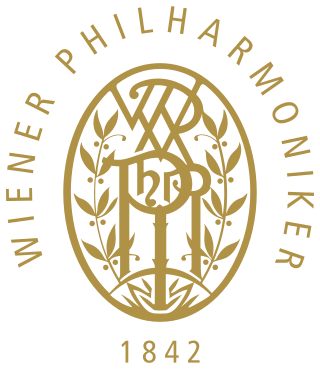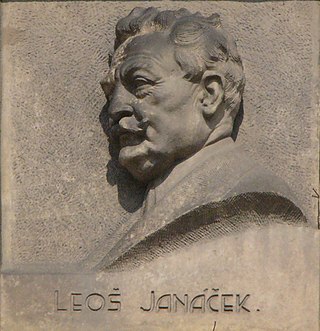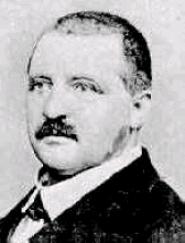Related Research Articles

Vienna Philharmonic is an orchestra that was founded in 1842 and is considered to be one of the finest in the world.

The Vienna New Year's Concert is an annual concert of classical music performed by the Vienna Philharmonic on the morning of New Year's Day in Vienna, Austria. The concert occurs at the Musikverein at 11:15. The orchestra performs the same concert programme on 30 December, 31 December, and 1 January but only the last concert is regularly broadcast on radio and television.

The Glagolitic Mass is a composition for soloists, double chorus, organ and orchestra by Leoš Janáček. The work was completed on 15 October 1926 and premiered by the Brno Arts Society, conducted by Jaroslav Kvapil, in Brno on 5 December 1927. Janáček revised the mass the next year.

Wiener Blut Op. 354 is a waltz by Johann Strauss II first performed by the composer on 22 April 1873. The new dedication waltz was to celebrate the wedding of the Emperor Franz Joseph I's daughter Archduchess Gisela Louise Maria and Prince Leopold of Bavaria. However, the waltz was also chiefly noted by Strauss' biographers as the début of Strauss with the Vienna Philharmonic Orchestra where for many years, the Philharmonic had dismissed any association with the 'Waltz King' as it had not wished to be associated with mere 'light' or 'pops' music. The festival ball celebrating the event was held at the Musikverein Hall which is the venue for the present day Neujahrskonzert.
Gordon Percival Septimus Jacob CBE was an English composer and teacher. He was a professor at the Royal College of Music in London from 1924 until his retirement in 1966, and published four books and many articles about music. As a composer he was prolific: the list of his works totals more than 700, mostly compositions of his own, but a substantial minority of orchestrations and arrangements of other composers' works. Those whose music he orchestrated range from William Byrd to Edward Elgar to Noël Coward.
Philip Wilby is a British composer, organist and choir director.

Also sprach Zarathustra, Op. 30 is a tone poem by Richard Strauss, composed in 1896 and inspired by Friedrich Nietzsche's philosophical 1883–1885 novel Thus Spoke Zarathustra. The composer conducted its first performance on 27 November 1896 in Frankfurt. A typical performance lasts thirty-three minutes.
Roxanna Panufnik is a British composer of Polish descent. She is the daughter of the Polish composer and conductor Sir Andrzej Panufnik and his second wife Camilla, née Jessel.

"Radetzky March", Op. 228, is a march composed by Johann Strauss Sr. and dedicated to Field Marshal Joseph Radetzky von Radetz. First performed on 31 August 1848 in Vienna, it soon became popular among regimented marching soldiers. It has been noted that its tone is more celebratory than martial; Strauss was commissioned to write the piece to commemorate Radetzky's victory at the Battle of Custoza.

Ein Heldenleben, Op. 40, is a tone poem by Richard Strauss. The work was completed in 1898. It was his eighth work in the genre, and exceeded any of its predecessors in its orchestral demands. Generally agreed to be autobiographical in nature despite contradictory statements on the matter by the composer, the work contains more than thirty quotations from Strauss's earlier works, including Also sprach Zarathustra, Till Eulenspiegel, Don Quixote, Don Juan, and Death and Transfiguration.

Crown Imperial is an orchestral march by William Walton, commissioned for the coronation of King George VI in Westminster Abbey in 1937. It is in the Pomp and Circumstance tradition, with a brisk opening contrasting with a broad middle section, leading to a resounding conclusion. The work has been heard at subsequent state occasions in the Abbey: the coronation of Queen Elizabeth II in 1953, the wedding of Prince William in 2011 and the coronation of King Charles III in 2023. It has been recorded in its original orchestral form and in arrangements for organ, military band and brass band.

Simone Margaret Young AM is an Australian conductor. She is currently chief conductor of the Sydney Symphony Orchestra.

Christian Thielemann is a German conductor. He is currently chief conductor of the Staatskapelle Dresden, and the designated Generalmusikdirektor of the Berlin State Opera.

The Sinfonietta from 1926 is a late work for large orchestra by the Czech composer Leoš Janáček. It is dedicated "To the Czechoslovak Army" and Janáček said it was intended to express "contemporary free man, his spiritual beauty and joy, his strength, courage and determination to fight for victory". It started by Janáček listening to a brass band, becoming inspired to write some fanfares of his own. When the organisers of the Sokol Gymnastic Festival approached him for a commission, he developed the material into the Sinfonietta. He later dropped the word military. The first performance was in Prague on 26 June 1926 under Václav Talich.

Orb and Sceptre is a march for orchestra written by William Walton for the coronation of Queen Elizabeth II in Westminster Abbey, London, on 2 June 1953. It follows the pattern of earlier concert marches by Elgar and Walton himself in consisting of a brisk opening section followed by a broad melody in the middle, trio, section and a return to the lively first theme to conclude the piece after a second appearance of the big tune.

The Te Deum in C major, WAB 45, is a setting of the Te Deum hymn, composed by Anton Bruckner for SATB choir and soloists, orchestra, and organ ad libitum.

Anton Bruckner's Psalm 150, WAB 38, is a setting of Psalm 150 for mixed chorus, soprano soloist and orchestra written in 1892.
This is an audio and video discography of the Vienna Philharmonic orchestra. Founded in 1842, the orchestra has a long history of recording music dating back to 1905.
Andreas Großbauer is an Austrian classical violinist. From September 2014 to September 2017 he was chairman of the Vienna Philharmonic.
Werner Resel is a German cellist. From 1987 to 1997 he was chairman of the Vienna Philharmonic.
References
- 1 2 3 4 Votta, Michael (2003). The Wind Band and its Repertoire: Two Decades of Research as published in the College Band Directors National Association Journal. Warner Bros. p. 48. ISBN 0-7579-1833-6. OCLC 57169022.
- 1 2 3 "Richard Strauss: Wiener Philharmoniker Fanfare". University of Maryland Wind Orchestra. Archived from the original on 28 November 2022. Retrieved 4 May 2023.
- ↑ "The Authorised Liturgy for the Coronation Rite of His Majesty King Charles III" (PDF). The Authorised Liturgy for the Coronation Rite of His Majesty King Charles III. Church of England. Archived from the original (PDF) on 4 May 2023. Retrieved 4 May 2023.